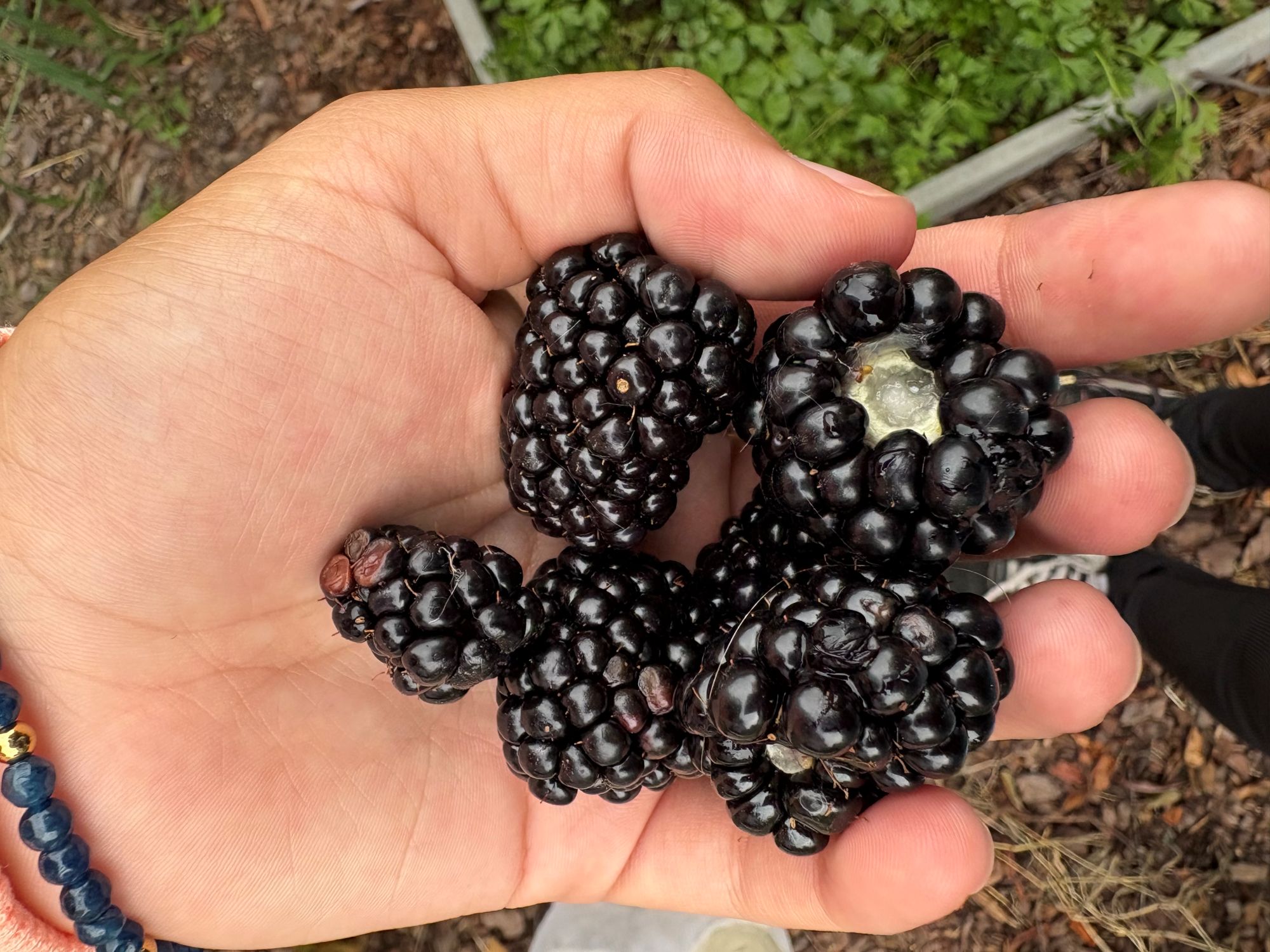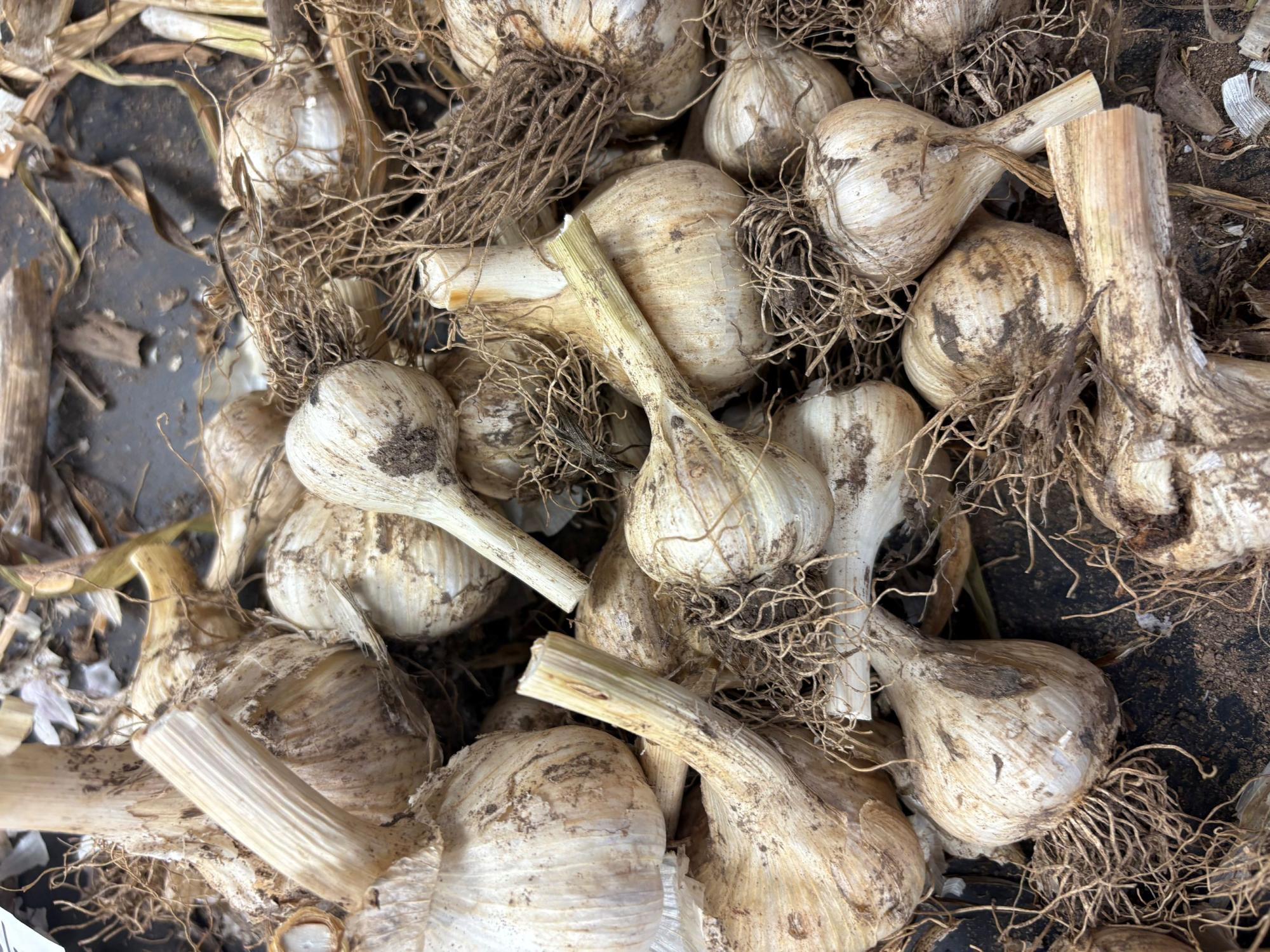About 20% of UMD students who live here on campus experience hunger, and about 8,000 students not only experience hunger but also other extreme health issues. The Community Learning Garden at UMD aims to address the food insecurity crisis surrounding campus by providing fresh, seasonal, and healthy produce for college students on our campus. This summer, we had the opportunity to work at the Community Learning Garden and help out at the Campus Pantry. This was a wonderful experience that provided us with first-hand knowledge and experience in working for a small-scale community mission.
Over the summer, we both interned at the Community Learning Garden (CLG) on campus, where we worked to address food insecurity in the surrounding community. The CLG is a powerful example of how urban gardens can support food needs. It allowed us to not only take part in a mission beyond the garden but also to apply sustainable agricultural practices in a real-world setting. As students, one studying Agricultural Sustainability with hopes of transferring into Environmental Policy, and the other pursuing Ornamental Horticulture with plans to transfer to Plant Biology, we each found the experience meaningful. It connected our coursework to hands-on work, while also reflecting the importance of urban and suburban spaces in shaping our passion for sustainability and community food systems.
Working in the garden, we each had the opportunity to take on unique individual projects at the Community Learning Garden. One of us focused on preparing a new website with updated information about recent garden initiatives and also began creating new signage, a project that will be an ongoing and valuable resource for the garden. Meanwhile, the other concentrated on maintaining our social media presence by posting current updates on Instagram, where we gained nearly 100 followers over the summer. In addition, responsibilities included updating the harvest log and price reference sheet in accordance with each harvest and comparable grocery prices, a task that helps demonstrate the monetary value of donations and ensures the CLG remains eligible for grants and funding. Together, these projects highlight how different skills can contribute to the growth and sustainability of the garden.
Over the past couple of months, we have had the opportunity to do many things we had never done before. Learning to properly maintain the garden was one of them. Working in the garden came with basic tasks such as watering, harvesting, planting, fertilizing, and weeding. Of these, weeding was definitely the most tedious. On some of the hottest days, we spent hours pulling weeds under the sun, and although it felt endless at times, we always got the job done.
Beyond daily maintenance, we also took on responsibilities such as giving tours of the CLG, managing volunteers, donating produce, and assisting with the Food Hub at the pantry. Each of these experiences was interactive and rewarding. At the Food Hub, we learned how donations are sorted and counted, gaining a deeper understanding of how the pantry operates. When delivering our own produce, we harvested vegetables and transported them to the pantry by golf cart, a task made much easier than in the past, when interns had to carry deliveries on foot. Leading tours gave us a chance to share the history and purpose of the CLG while also practicing our public speaking skills, which was both fun and valuable.
Throughout the season, we grew a variety of seasonal produce. In early summer, we harvested and cleared spring crops like garlic, kale, bok choy, and mustard greens. By midsummer, our focus shifted to tomato, pepper, and eggplant seedlings, along with cucumbers and summer squash that we started from seed. Along the way, we learned to identify plant diseases, pests, and nutrient deficiencies, and to apply remedies before they spread or damaged the plants. Altogether, these experiences not only strengthened our gardening skills but also deepened our appreciation for the effort it takes to grow food for a community.
Through our work at the CLG, we both felt a strong sense of accomplishment and personal growth. The experience not only allowed us to discover new things we enjoy, but also allowed us to gain an understanding of how important the garden is to the campus community. While so many people do not have access to fresh produce, to help work toward such a mission was deeply fulfilling. Along the way, we gained valuable knowledge in the care and management of a garden while also contributing to the larger goal of addressing food insecurity for fellow Terps. This experience gave us a new appreciation for the hard work it takes to maintain even a small-scale food production system, while also showing us how rewarding it is to work toward a cause that benefits so many.
Our time at the Community Learning Garden was a personal and professional experience. From the everyday work of caring for plants to leading tours, creating resources, and donating produce, we were able to see firsthand the impact a small urban garden can have on addressing food insecurity and fostering community. This internship taught us that there is a greater mission to which we can apply what we have learned in school, skills to develop, and service. And most of all, it has revealed to us the understanding of sustainable food systems to show the commitment needed to maintain them. The learning, skills, and appreciation we gained from this experience will continue with us as we move on toward our academic and career pathways, along with the motivation to work toward ever more sustainable and equitable food systems.

